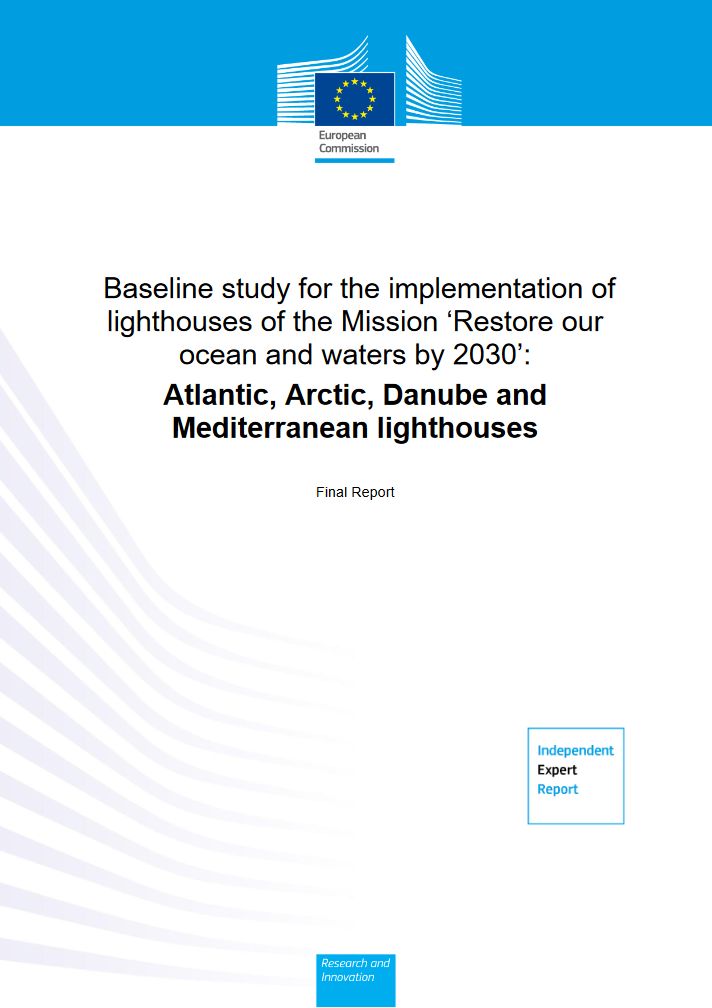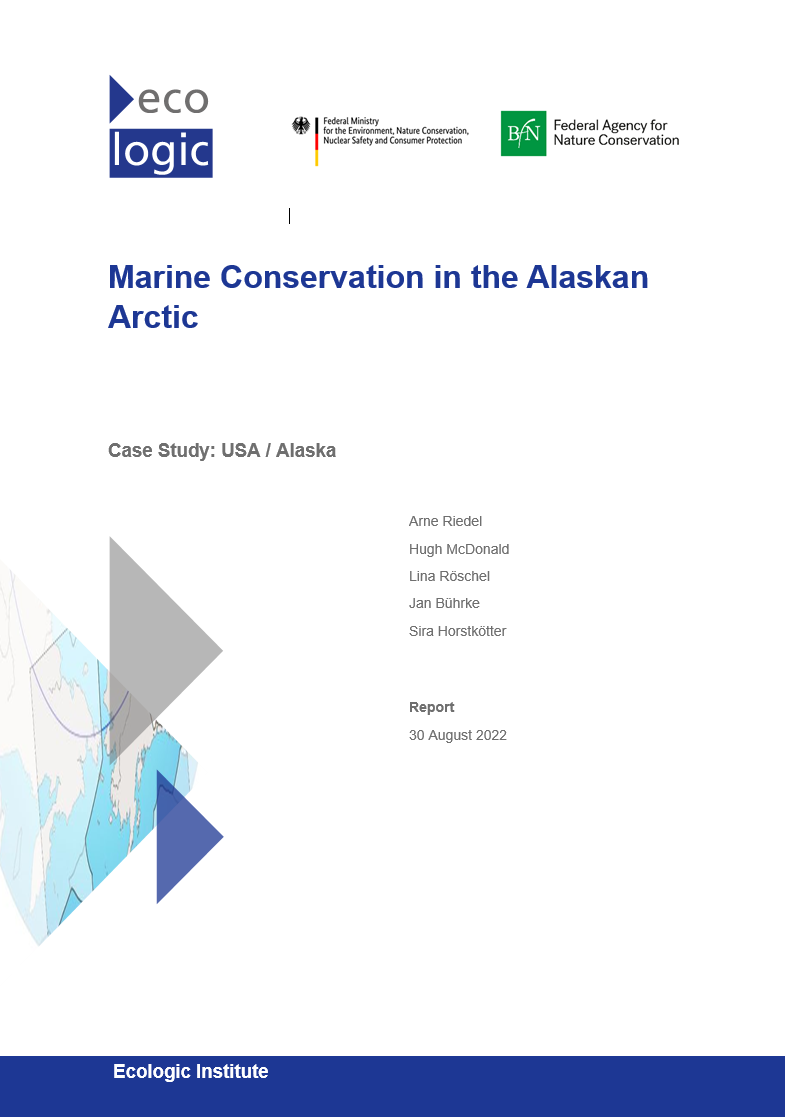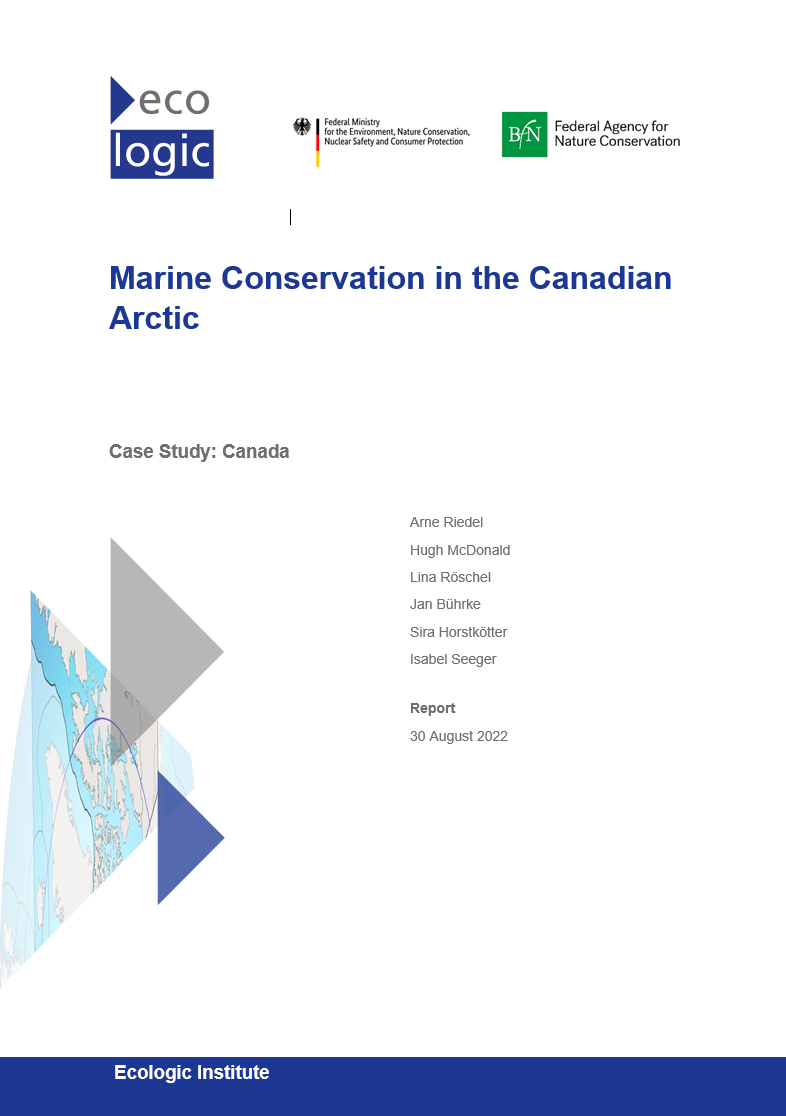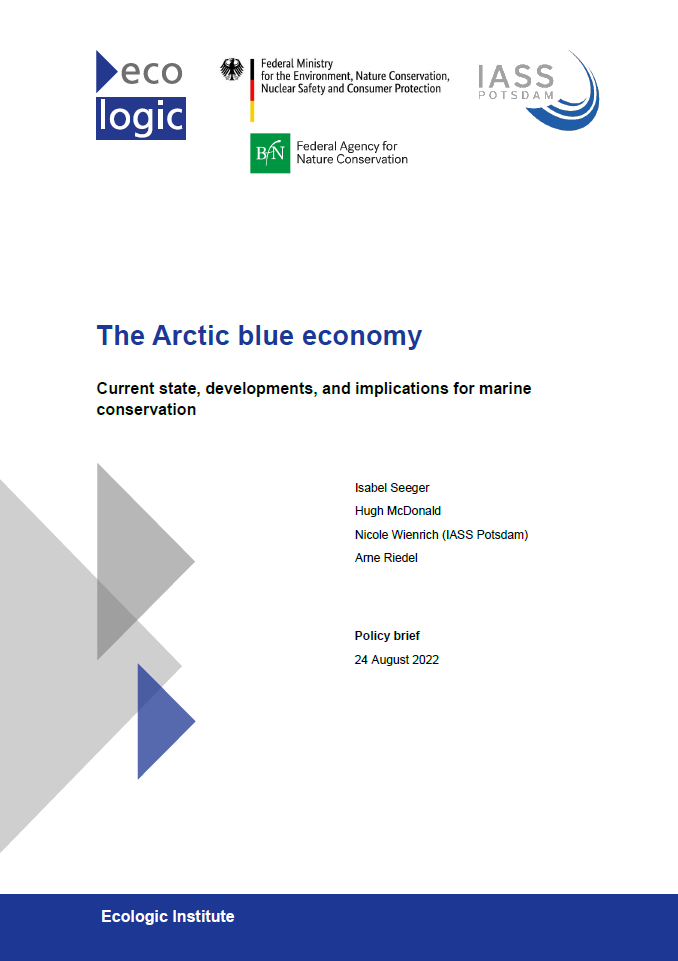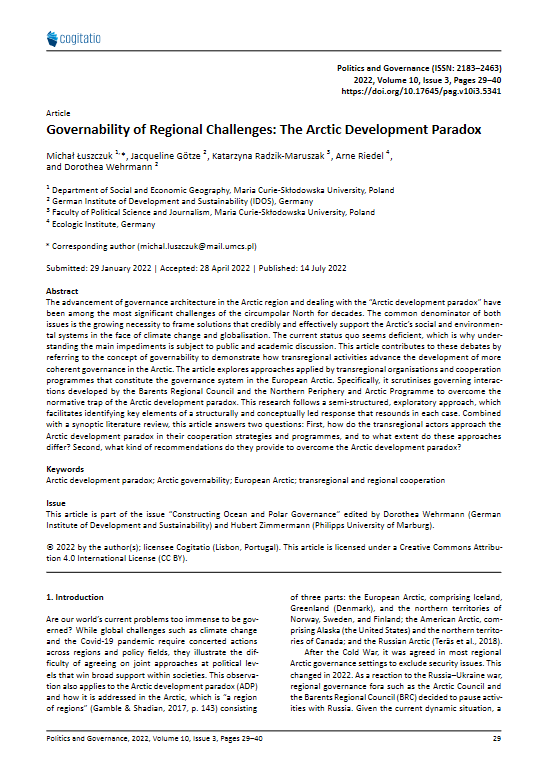Arctic Circle Assembly 2025, All Rights Reserved
Dynamic Ocean Management in Arctic Waters – New Dynamic with the BBNJ Agreement?
Panel session at the Arctic Circle Assembly 2025
- Event
- Date
-
- Location
- Reykjavik, Iceland
- Speaker
On 18 October 2025, Ecologic Institute and the Kiel Institute for the World Economy (IfW Kiel) organised a panel discussion "Dynamic Ocean Management in Arctic Waters – New Dynamic with the BBNJ Agreement?" as part of the Arctic Circle Assembly 2025 in Reykjavik, Iceland.
The panel, moderated by Fenja Kroos, Researcher at Ecologic Institute (Germany), brought together five experts to explore and discuss the potential for dynamic marine biodiversity conservation in areas beyond national jurisdiction (ABNJ) in the Arctic, as well as possible links to adjacent national jurisdictions. The discussion focused on the Agreement on the conservation and sustainable use of marine biological diversity of areas beyond national jurisdiction (BBNJ Agreement), highlighting its potential for dynamic area-based management tools (ABMTs) in the Arctic and possibilities for dynamic management across borders.
The session opened with Prof. Dr. Wilfred Rickels, Director of Global Commons and Climate Policy Research Centre at IfW Kiel (Germany), who provided a general overview of the concepts of dynamic ocean management and dynamic marine protected areas (MPAs), outlining their potentials and challenges in the Arctic context. In Wilfred's opinion, while the dynamic ocean management approach is not sufficient for achieving sustainable marine (Arctic) development, supplementary measures might support the application of this approach.
Anna Soer, Researcher at University of Ottawa (Canada), continued with an input on the current state of the BBNJ Agreement, addressing its limitations regarding applicability and its potential amid growing global uncertainty and increasing securitisation of the Arctic discussions. Anna also highlighted the opportunities the BBNJ creates for fostering new dynamics of cooperation and multilateralism in ocean protection.
Arne Riedel, Senior Fellow at Ecologic Institute (Germany), contributed a legal perspective on the potentials and limitations of dynamic and adaptive ocean management in the Central Arctic Ocean (CAO) under the BBNJ Agreement.
Bastiaan E. Klerk, Researcher at UiT the Arctic University of Norway (Norway), provided insights into how the BBNJ Agreement assigns primary responsibility for implementing ABMTs and MPAs to existing “institutions, frameworks and bodies” (IFBs), particularly sectoral organisations. Bastiaan pointed out that regional bodies such as OSPAR could serve as crucial platforms for scientific cooperation and coordination of conservation measures, thereby facilitating the regional implementation of dynamic ABMTs in the Arctic.
Katharina Heinrich, Researcher at University of Lapland (Finland), concluded the round of inputs by reflecting on the key aspects and characteristics required for an approach that is fit for purpose. In this context, Katharina introduced the concept of a threshold-based approach, highlighting how it aligns with the governance and management framework of the CAO and its connection to the BBNJ Agreement.
During the subsequent panel discussion and Q&A session, the experts elaborated further on examples of thresholds that could form part of a fit-for-purpose approach and reflected on the potential for introducing dynamic ocean management solutions in the areas beyond the CAO, where the governance architecture is less complex.
The panel session was organised as part of the DynArc project, which focuses on analysing and outlining the potential implications of a new international agreement for dynamic protection and adaptive management in the Central Arctic Ocean, as well as on the development of indicators to evaluate the success of local implementation.




